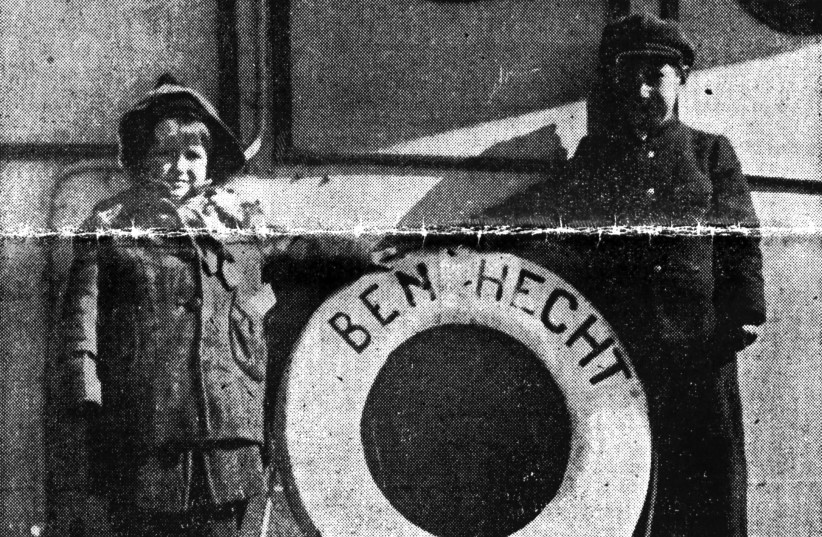(JTA) — Max Moszkowicz, a Holocaust survivor who became the Netherlands’ first modern-day celebrity lawyer, has died at the age of 95.
Moszkowicz, a steel-willed Auschwitz survivor who returned to the Netherlands after World War II, is perhaps best remembered for his 1987 defense of the kidnappers of the beverage mogul Freddy Heineken.
Although the kidnappers were found guilty in a trial that was closely watched around the world, Moszkowicz managed in a stunning legal feat to obtain prison sentences of just four years for each of them.
Moszkowicz was born in Germany in 1926 and moved with his family to the Netherlands in 1933, after Hitler took power in his native country. Like the vast majority of Dutch Jews, his parents and two siblings were murdered during the Holocaust. He himself survived Auschwitz.
Returning to the Netherlands, Moszkowicz studied law at night school while running a textile factory. A self-made man, he challenged the country’s legal elite through hard work and, his critics said, a propensity for bending the rules.

“He was an unusually sharp-witted attorney,” John van den Heuvel, a journalist who knew Moszkowicz well, told the RTL television channel in an interview about the lawyer’s death on January 27, International Holocaust Remembrance Day. “He had a key role in all the famous trials since the 1970s. He was respected by his clients but also by the judiciary.”
One of the most unusual and central aspects of Max Moszkowicz’s personal and professional performance was his close and often uneasy relationship with his four sons, all of whom worked for him for at least some time. Together, they took the family business that he started to new heights, turning their name into a household brand with winning arguments in some of the country’s most famous trials.
One of his sons, Bram, made international headlines for representing Geert Wilders, a Dutch politician branded by some as “little Hitler” for his anti-Muslim rhetoric. Bram Moszkowicz won Wilders’ acquittal in a 2010 trial on hate speech charges.
Determined to rebuild his Jewish family that the Nazis destroyed, Max Moszkowicz disowned another son, Robert, because he married a non-Jewish woman, according to a documentary film about the family made in 2016.
The rejection was so absolute that in 1993, Moszkowicz and three of his sons appeared as a family on a television talk show without ever mentioning Robert. “Four musketeers,” Bram Moszkowicz told the host in describing his family on the show. “One for all, all for one.”
But Moszkowicz renewed his ties with Robert in 1988 following the son’s arrest for dealing drugs. His father took on the defense of his son, obtaining a three-month jail sentence. During a charged jailhouse meeting, the father told his wayward son that the facility reminded him of the concentration camp.
The patriarch “raised his boys to be invincible,” Leon de Winter, a Dutch author who knows the family well, told the Jewish Telegraphic Agency in 2016. “And they, in their desperate love and dedication to him, felt the only way to get close and equal to him was to follow him into hell.”
Three of Max Moszkowicz’s four sons have been disbarred for various offenses.
Although they built an empire, the Moszkowiczes arguably remained outsiders in the Netherlands, separated from the intellectual elite by their own traumas and weaknesses for flashy cars and expensive clothes.
“It’s as though they overcompensated in a delayed and tragic effect of the hell that Max Moszkowicz went through in Auschwitz,” de Winter said of the family.
